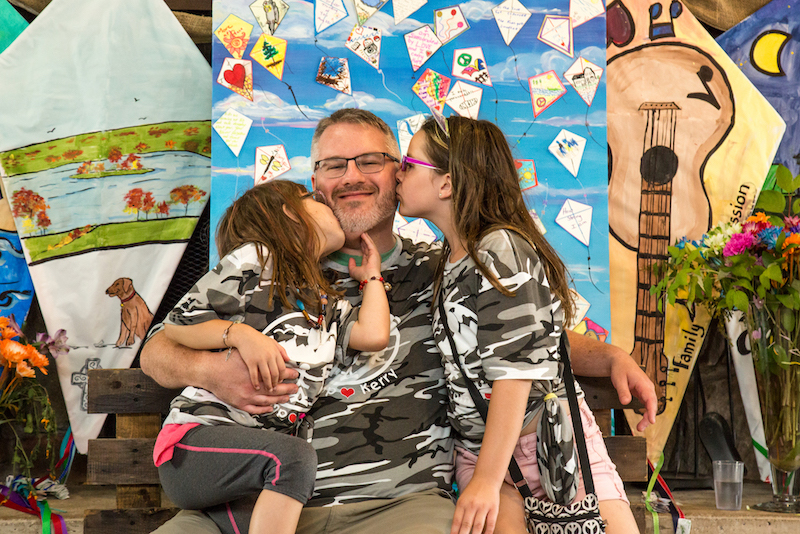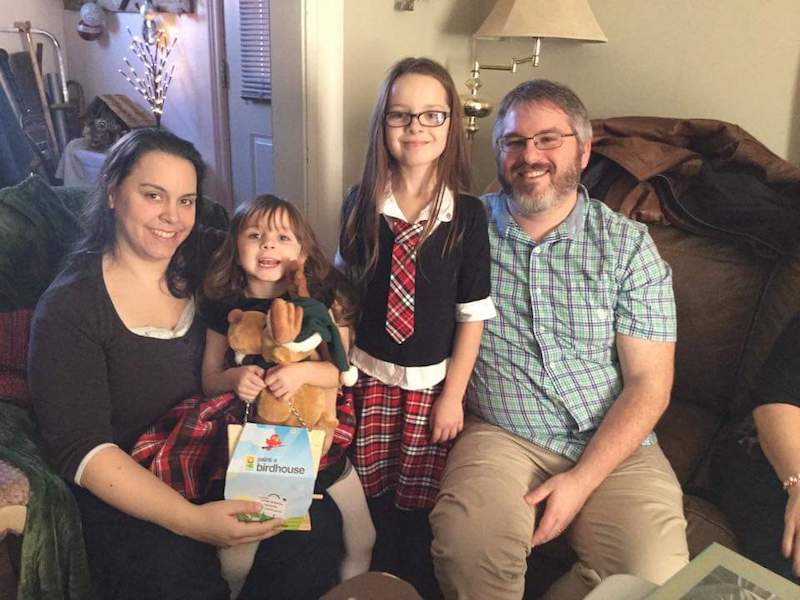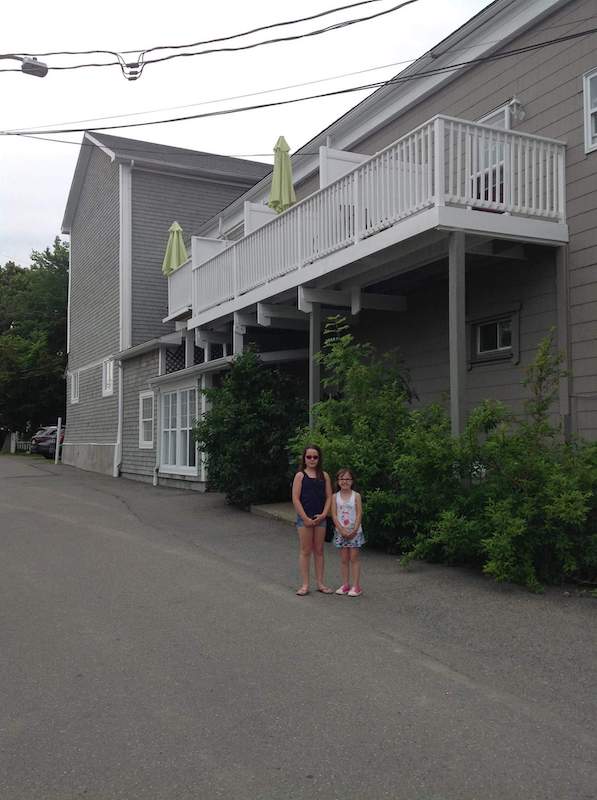The Ebb and Flow of Grief: How One Father Finds Hope

Dave was just 34 years old when he became a widower. Sandi, his wife and the mother of their two young daughters, had died quite suddenly from complications of chemotherapy treatment.
When the shock felt by extended family and friends started to subside, Dave and his daughters had to find new ways to manage their lives and make new routines.
“Over time, less help was offered, not to anyone’s fault. They would all be there if I needed,” Dave says. “But few understood what this loss is like since this didn’t take place in their own household.”
Sandi was 37 when she was diagnosed with Hodgkin’s Lymphoma, a type of blood cancer. Almost immediately, she started what would be 5 months of chemotherapy treatment.
“In July 2016 she had no more tumours and had no more cancer,” Dave explains. “The next few treatments of chemo were to lessen the likelihood of the cancer returning, but there were some pretty awful side effects to those drugs, one of which was blood clots in the lungs. That’s what attributed to her sudden death.”
Over time, less help was offered, not to anyone’s fault. They would all be there if I needed, Dave says. “But few understood what this loss is like since this didn’t take place in their own household”.

Family portrait above: Sandi, Abigail, Samantha & Dave
One year later, in July 2017, Dave took his two girls on a special trip to celebrate his and Sandi’s 10th wedding anniversary.
“I made it a big weekend for them,” Dave says. “I took the girls to Saint Andrews, New Brunswick, where my wife and I met. I showed them the balcony where their mother was standing when I met her. I showed them where we used to go. We celebrated.”

It was during this trip that Dave saw a post on Facebook about Camp Kerry in the Atlantic Provinces.
“The one paragraph describing help for families who have experienced loss was exactly what I was looking for,” Dave explains. “I just didn’t realize how close to home it was.”
Dave and his daughters have attended two Camp Kerry Family Retreats since then.
“My oldest daughter was 7 when her mother passed away. She was 8 when we went to our first Camp Kerry Retreat,” Dave says. “When went back the following year, people started to notice how caring she was to the other children, and how sympathetic she was to teenagers and adults.”
“I’ve seen a lot of growth in my oldest daughter that I know wouldn’t have happened as quickly, if we hadn’t gone to these camps.”
The family has also stayed connected to the Camp Kerry community throughout the year.
“Every time I go, I think I don’t necessarily need to go,” Dave shares. “But I’m certainly glad that I did. It is good to reconnect with people who understand completely what it is like, day to day. There is an ebb and flow to grief.
I’m thankful for everyone who is involved – donors, staff and volunteers – and really can’t believe this many people, with so much talent behind them, are willing to put this much effort into my family and others like us.
At Camp Kerry we are a creative, compassionate community that embraces and supports those who are grieving.
Every year we host Camp Kerry Retreats where families who are grieving the loss of a child, sibling, parent, spouse or grandparent can connect, celebrate, mourn, remember and play in a safe, compassionate environment. Hosted in British Columbia, Ontario and Atlantic Canada, our retreats in 2019 will bring together 65+ families (that’s over 200 people) for four-day weekends.
We have a diverse team of highly skilled and compassionate volunteers in each province who work together to connect families and help to create the special magic of each Camp Kerry family retreat.
Thank you for embracing and supporting those who are grieving. We couldn’t do this important work without you.